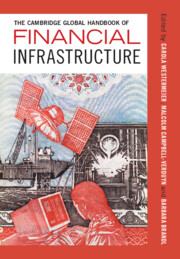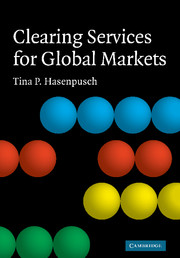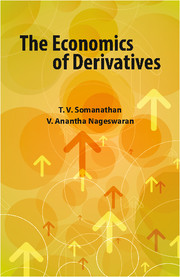The Cambridge Global Handbook of Financial Infrastructure
Financial infrastructures are the lifeblood of political economies and are consistently considered critical by governments. They encapsulate socio-technical processes; not merely cables and computer servers, but the relationship of those in finance to these and other physical objects. The Cambridge Global Handbook of Financial Infrastructure consolidates the study of financial infrastructures by bridging political economy, humanities, sociology and science and technology studies. It delves into the core questions of modern finance, from the effect of digitalization on financial functions to the intricate web of global power dynamics. Drawing together interdisciplinary research, it explores the nuances of inclusivity and exclusivity within financial systems, shedding light on historical inequalities and colonial legacies. Including fresh insights, compelling case studies, and conceptual advances, this essential volume offers invaluable perspectives for informing analysis of the past, present, future of finance, and shaping policy debates. This title is also available as Open Access on Cambridge Core.
- A state-of-the-art survey on financial infrastructures and how to conceptualize them
- Introduces a number of financial infrastructures in an accessible way
- Traces how technologies and social processes impact one another and evolve
- Title is Open Access
Product details
June 2025Hardback
9781009428132
420 pages
254 × 178 × 24 mm
1.02kg
Available
Table of Contents
- List of figures page
- List of tables
- List of contributors
- Acknowledgments
- 1. Infrastructural gazing on global finance Carola Westermeier, Malcolm Campbell-Verduyn and Barbara Brandl
- Part I. Conceptual Approaches:
- 2. Derivatives, market liquidity and infrastructural finance Chris Muellerleile
- 3. Where does infrastructure sit in the Callonian perspective on markets? David Pinzur
- 4. Infrastructural power in financial governance: its meaning, applications and varieties Nathan Coombs
- 5. Financial platforms: beyond the north–south divide Janet Roitman
- 6. Finance and the critique of infrastructural reason Andreas Langenohl
- 7. Assets: boundary objects between financial practices and infrastructures Philipp Golka
- 8. Payments and hegemony: infrastructural sedimentation, reach and disposition Carola Westermeier and Marieke de Goede
- Part II. Histories of Financial Infrastructures:
- 9. Financial infrastructures and colonial history in Africa Nick Bernards
- 10. Wiring markets: the telegraph as financial infrastructure in the first age of globalization John Handel
- 11. Remaking the financial infrastructure of the city of London Matthew Eagleton-Pierce
- 12. Alternative financial infrastructures in Russia Roxana Ehlke
- 13. Colonial legacies in Lebanese financial infrastructures and the impact on financial crisis Cybele Atme
- Part III. Organizations and Actors of Contemporary Financial Infrastructures:
- 14. Exchanges: infrastructures, power and differential organization of capital markets Johannes Petry
- 15. Financial infrastructures in the context of financial development: the case of Brazil's stock exchange Giselle Datz
- 16. Target2-securities: Europe's new financial infrastructure Troels Krarup
- 17. Opportunities and barriers to regional payment systems: the case of the SML Annina Kaltenbrunner and Bianca Orsi
- 18. Blame game: illicit finance, de-risking and the politics of private financial infrastructure Mark Nance and Eleni Tsingou
- 19. Swift: trusted infrastructure for infrastructures Gary Robinson, Sabine Dörry and Ben Derudder
- 20. Infrastructural geoeconomics: the emergence of Chinese and Russian cross-border payment systems Andreas Nölke
- 21. Derivatives market reforms and the infrastructural authority of central clearing counterparties Lorenzo Genito and Andrea Lagna
- 22. Esg: 'sustainable' investing and the risk of infrastructural lock-in Jan Fichtner, Robin Jaspert, and Johannes Petry
- 23. Issue control in green infrastructures Leonard Seabrooke and Annika Stenström
- Part IV. Digital Technologies and the Future of Financial Infrastructure:
- 24. Social media and the changing infrastructures of money Lana Swartz
- 25. Trading on social trading platforms Xiaochuan Tong and Alex Preda
- 26. Digital financial infrastructures in the African agricultural sector: practices, networks, and philanthrocapitalism Marie Langevin and Valérie L'Heureux
- 27. India stack: authority and innovation in a new financial infrastructure J. P. Singh
- 28. Infrastructures for financial inclusion in South Asia Juvaria Jafri
- 29. A short infrastructural history of currency digitalization in the People's Republic of China, 2000s–2020s Tim Salzer
- 30. Infrastructure for inclusion: evaluating China's financial infrastructure and financial inclusion Falin Zhang, Yang Cui and Mingzhen Yang
- 31. AI as financial infrastructure? Edemilson Paraná
- Index.








